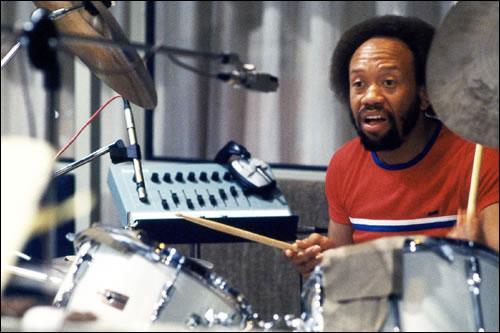The Earth, Wind, and Fire...This Time: In Appreciation of Maurice White by Law Ware
 The Earth, Wind, and Fire...This Time: In Appreciation of Maurice Whiteby Law Ware | @Law_Ware | NewBlackMan (in Exile)
The Earth, Wind, and Fire...This Time: In Appreciation of Maurice Whiteby Law Ware | @Law_Ware | NewBlackMan (in Exile)To fully appreciate the work of Earth, Wind & Fire founder Maurice White, we must understand the historical context that influenced his work. Earth, Wind and Fire became household names at a time of national strife. After the assassination of Martin Luther King, Jr. in April of 1968, Chicago, Maurice White’s hometown, erupted into chaos. The 1968 Chicago Riots are still remembered as 48 hours of unmitigated violence both at the hands of the rioters and the police. Riots erupted again in August of the same year when the Democratic National Convention came to town.
It was a time of civil unrest and black consciousness. Those who perpetually experienced the underside of the American democratic experiment organized and pushed back against political white supremacy and white normativity. Slogans like fight the power and black is beautiful could be heard over the airways while black men and women pushed aesthetic boundaries in how they dressed and styled their hair.
It was a revolutionary time, and, as always, music reflected what was happening in the streets. The Last Poets declared that Niggers are Scared of Revolution. Gil Scott-Heron said it was Winter in America. Marvin Gaye asked What’s Going on? And the Chi-lites demanded (For God's Sake) Give More Power to the People. These songs are grounded in the lived experience of black and brown people suffering under oppression. They are political statements.
This is the milieu that influenced the late Maurice White. Earth Wind and Fire gave voice to these concerns, but part of White’s genius was that they did so in deceptively innovative ways.
By focusing on themes of love and community, EWF combated the psychological violence visited upon black America by affirming the uniqueness of our sound and culture. Theirs was a music that celebrated black brilliance.
Songs like Shining Star and Sing a Song communicated the truth that no matter your circumstances, no matter the psychic violence you endure, you are beautiful, you are validated—and there is hope. Let’s Groove and Boogie Wonderland are a celebration of black beauty and an affirmation of black joy. Can’t Hide Love and After the Love is Gone make room for black romantic expression in all its complexity and splendor. White unapologetically centered blackness, and we are all the better for it.
The unique nature of White’s sonic experimentation continues to influence black musicianship today—notably, and perhaps unexpectedly, this influence is deeply felt in hip-hop.
EWF’s work has been heavily sampled. Jay-Z’s ubiquitous 1999 hit Nigga What, Nigga Who samples the electric guitar from Earth Wind, and Fire’s Sunshine. Big Pun and Joe’s Still not a Player borrows the melody, piano and percussion of the effervescent Brazilian Rhyme; and the Fugee’s underground hit Nappy Heads borrows melodically from the classic ballad I Think About Loving You. Artists as diverse as Piles, O.S.T.R. and Three 6 Mafia have sampled the brilliant Fantasy. And the experimentation of placing orchestration with heavy percussion and electric bass is still present in the work of artists like Kanye West, Dr. Dre, and Timbaland.
Maurice White’s music pushed back against the tendency of marginalized people to be defined by their oppression. He refused to allow pain to have the final word. He was innovative and influential in the use of sound and percussion, but his greatest legacy is in the decision to affirm and celebrate the fullness of the black experience.
Thank you, Maurice White, for the beauty and witness you brought to the world. Rest with the ancestors.
+++
Lawrence Ware is an Oklahoma State University Division of Institutional Diversity Fellow. He teaches in OSU's philosophy department and is the Diversity Coordinator for its Ethics Center. A frequent contributor to the publication The Democratic Left and contributing editor of the progressive publication RS: The Religious Left, he has also been a commentator on race and politics for the Huffington Post Live, NPR's Talk of the Nation, and PRI’s Flashpoint. Follow him on Twitter: @law_ware
Published on February 13, 2016 20:31
No comments have been added yet.
Mark Anthony Neal's Blog
- Mark Anthony Neal's profile
- 30 followers
Mark Anthony Neal isn't a Goodreads Author
(yet),
but they
do have a blog,
so here are some recent posts imported from
their feed.



